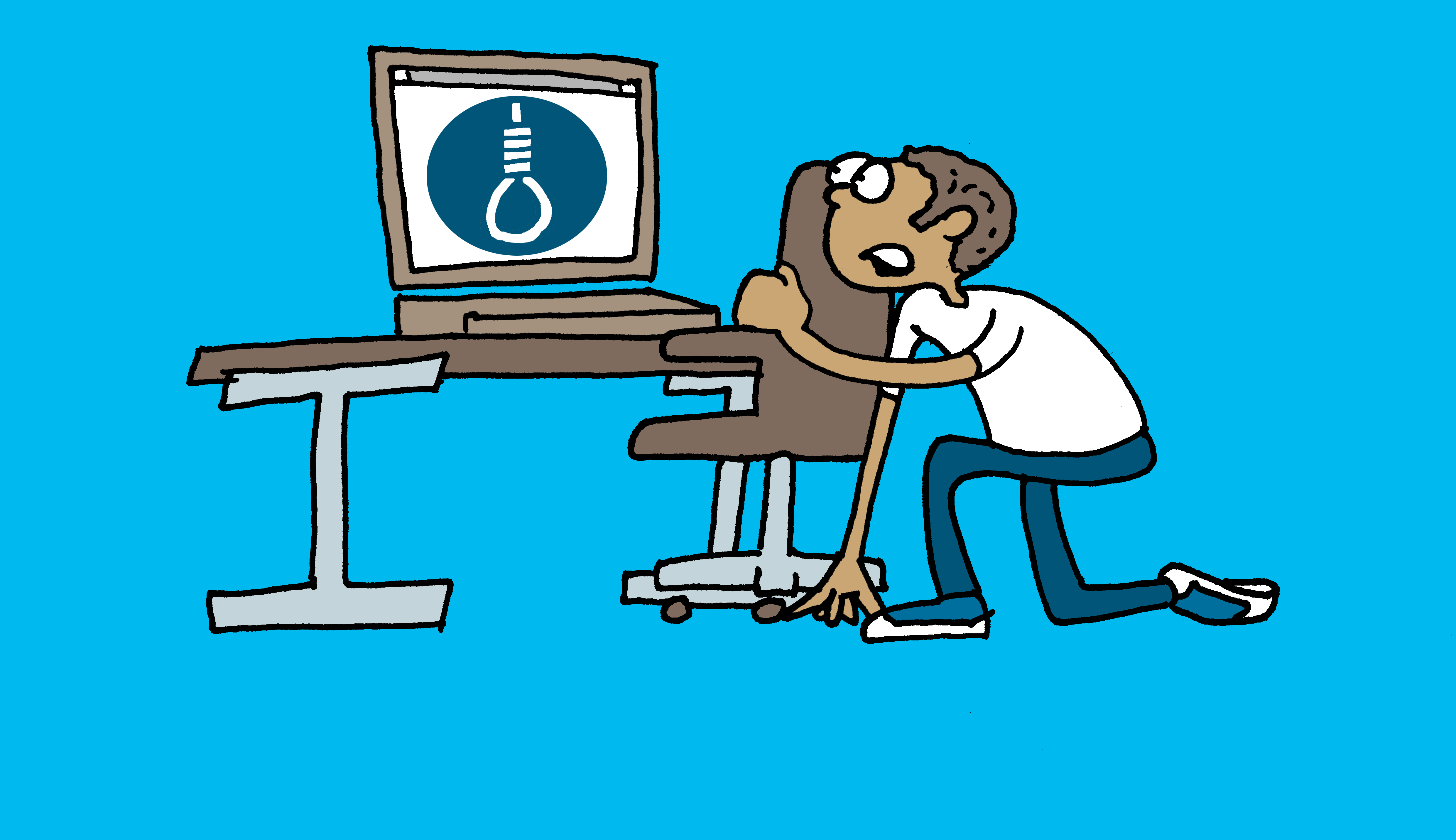What does TU Delft do if its researchers come under fire on social media for doing their work? “Open support is welcome.”
Illustration: Auke Herrema
Over the last few years, TU Delft has emphatically profiled itself as a university that makes a societal impact. So it is hardly surprising that its scientists have a greater presence on radio, TV and social media. That this brings the risk of being overwhelmed by hateful messages almost speaks for itself.
Delta recently asked three staff members – Andy van de Dobbelsteen (climate), Niek Mouter (corona vaccinations) and Thomas Frederikse (climate) – how they dealt with this when it happened to them. Renee Wever, currently a professor in Sweden and up to 2015 an assistant professor at TU Delft, asked on Twitter what TU Delft actually does when a situation like this arises.
- Translation:
While this piece perfectly matches Leiden University’s Dies Lecture by @InekeSluiter on Monday, it goes well beyond @tudelft’s obligations in looking after its staff. Assuming that it will blow over …
How does it affect you if you are an academic and are caught up in a social media storm? Delta spoke to scientists @dobbelska, @NMouter and Niek Frederikse about their experiences and tips. “I have started to word things more carefully.”
Delta talked to the Director of Communications, Joost Ravoo.
He does not believe that TU Delft staff are left in the cold if they come under fire online. Communications staff can support them ‘in word and in deed’. “That said, it depends what the dispute is about. If it is purely scientific, we Communications people cannot add much. If trolls harass you, we can help.”
The Communications Department keeps a record of references to TU Delft in the media in a media monitor. Should Communications staff see that a colleague or student is under fire, they can contact them. Ravoo does not know how often they do this. “But I assume that they are assertive enough to do so.”
Power of social media channels
There was one case recently “When we saw that a TU Delft student was dragged through the mud. We reported this to Twitter and to our surprise, the contested tweets were removed.” Equally, Ravoo emphasises that any staff member or student who experiences these sort of problems may report it themselves to Communications staff.
‘Try to see what someone does not understand’
If help is needed and is wanted, TU Delft can publicly back a student or staff member. “Even though our followers are limited in number, we can use the power of our social media channels. There is no guarantee that it will work, but for the person in question, it can feel good to be supported openly,” says Ravoo.
Ravoo says that Communications frequently manages debates either from TU Delft accounts or from the individual communications officers. “This is done using questions, facts or comments, or by adding evidence to support the position of our researcher or student. The favourite subject of conspiracy theorists is climate change. We regularly share the TU Delft Climate Action pamphlet. This pulls the discussion away from the individual and towards the position of the whole institution.”
Are there any conditions determining whether you receive support? Does it matter what you have said or done? Ravoo admits that this is tricky and cannot be put into hard and fast rules. “In terms of substance, you can say anything, but you do have to word it decently.”
Ravoo also expects that staff and students are able to judge the reactions that they respond to and the ones that they ignore. However, this is not easy. “On the one hand, it is good to respond politely to questions and comments. Do not sit in an ivory tower, instead try to see what someone does not understand and explain it. Keep it short, as every sentence can trigger a flood of, sometimes senseless, arguments. If this does not work, invite the person to come for a chat. On the other hand, sometimes it is simply useless to respond. There are limits to what TU Delft students and staff can do.”
Do you have a question or comment about this article?
s.m.bonger@tudelft.nl


Comments are closed.